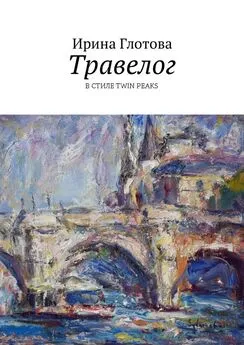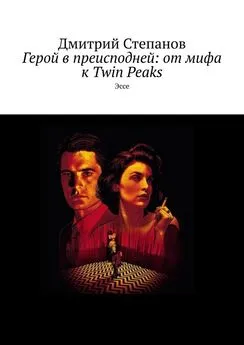Peake, Mervyn - 02 Gormenghast
- Название:02 Gormenghast
- Автор:
- Жанр:
- Издательство:неизвестно
- Год:неизвестен
- ISBN:нет данных
- Рейтинг:
- Избранное:Добавить в избранное
-
Отзывы:
-
Ваша оценка:
Peake, Mervyn - 02 Gormenghast краткое содержание
02 Gormenghast - читать онлайн бесплатно полную версию (весь текст целиком)
Интервал:
Закладка:
'O, you were too small and you can't remember, Titus,' said Fuchsia. 'I remember it all. Mr Flay was father's first servant - above them all, weren't you, Mr Flay - until he disappeared...'
'I know,' said Titus. 'I've heard it all in Bellgrove's class - they told me all about it.'
'They don't know anything,' said Flay. 'They don't know anything, ladyship.' He had turned to Fuchsia and then, dropping his head forward again, 'Humbly invite you to my cave,' he said, 'for rest, for shade and fresh water.'
Mr Flay led the way to his cave, and when they had passed through the entrance and Fuchsia had been shown the double chimney and they had drunk deeply from the spring, for they were hot and thirsty, Titus lay down under the ferny wall of the inner cave and their ragged host sat a little way apart. His arms were folded about his shanks; his bearded chin was on his knees - while his gaze was fixed upon Fuchsia.
She, on her side, while noticing his childlike scrutiny, gave him no cause to feel embarrassed, for she smiled when their eyes met, but kept her gaze wandering about the walls and ceiling, or turning to Titus asked him whether he had noticed this or that on his last visit.
But a time came when a silence fell upon the cave. It was the kind of silence that becomes hard to break. But it was broken in the end, and, strangely enough, by Mr Flay himself, the least forthcoming of the three.
'Ladyship... Lordship,' he said.
'Yes, Mr Flay?' said Fuchsia.
'Been away, banished, many years, ladyship,' he opened his hard-lipped mouth as though to continue, but had to close it again for the lack of a phrase. But after a while he commenced again. 'Lost touch, Lady Fuchsia, but forgive me - must ask you questions.'
'Of course, Mr Flay, what sort of questions?'
'I know the sort.' said Titus - 'about what's happened since I was last here and what's been discovered, isn't it, Mr Flay? And about Barquentine's being dead and...'
'Barquentine dead?' Flay's voice was sudden and hard.
'Oh yes,' said Titus. 'He was burned to death, you know, wasn't he, Fuchsia?'
'Yes, Mr Flay. Steerpike tried to save him.'
'Steerpike?' muttered the long, ragged, motionless figure.
'Yes.' said Fuchsia. 'He is very ill. I've been to see him.'
'You haven't!' said Titus.
'I certainly have and I shall go again. His burns are terrible.'
'I don't want you to see him,' said Titus.
'Why not?' the blood was beginning to mount to her cheeks.
'Because he's...'
But Fuchsia interrupted him.
'What... do... you... know... about... him?' she said very softly and slowly, but with a shake in her voice - 'Is it a crime for him to be more brilliant than we could ever be? Is it his fault that he is disfigured?' And then in a rush - 'or that he's so brave?'
She turned her eyes to her brother and seeing there, in his features something infinitely close to her, something that seemed to be a reflection of her own heart, or as though she was looking into her own eyes- 'I'm sorry,' she said, 'but don't let's talk about him.'
But this is just what Flay wanted to do. 'Ladyship.' he said. 'Barquentine's son - does he understand - has he been trained - Warden of the Documents - Keeper of the Groan law - is all well?'
'No one can find his son, or whether he ever had a son,' said Fuchsia. 'But all is well. For several years now Barquentine has been training Steerpike.'
Flay rose suddenly to his feet as though some invisible cord had plucked at him from above, and as he rose he turned his head to hide his anger.
'No! No!' he cried to himself, but there was no sound. Then he spoke over his shoulder.
'But Steerpike is ill, ladyship?'
Fuchsia stared up at him. Neither she nor Titus could understand why he had suddenly got to his feet.
'Yes.' said Fuchsia. 'He was burned when he tried to save Barquentine who was on fire - and he's been in bed for months.'
'How much longer, ladyship?'
'The doctor says he can get up in a week.'
'But the Ritual! The instructions; who has given them? Who has directed the Procedure - day by day - interpreted the Documents - O God!' said Flay, suddenly unable to control himself any longer. 'Who has made the symbols come to life? Who has turned the wheels of Gormenghast?'
'It is all right. Mr Flay. It's all right. He does not spare himself. He was not trained for nothing. He is covered in bandages but he directs everything. And all from his sickbed. Every morning. Thirty or forty men are there are a time. He interviews them all. Hundreds of books are at his side - and the walls are covered with maps and diagrams. There is no one else who can do it. He is working all the time, while he lies there. He is working with his brain.'
But Flay struck his hand against the wall of the cave as though to let out his anger.
'No! No!' he said. 'He's no Master of Ritual, ladyship, not for always. No love, ladyship, no love for Gormenghast.'
'I wish there wasn't any Master of Ritual,' said Titus.
'Lordship,' said Flay after a pause, 'you are only a boy. No knowledge. But you will learn from Gormenghast. Sourdust and Barquentine, both burned up,' he continued, hardly knowing that he spoke aloud... 'father and son... father and son...'
'Maybe I'm only a boy,' said Titus hotly, 'but if you know how we've come here today, by the secret passage under the ground (which I found by myself, didn't I, Fuchsia? then...' but Titus had to stop for the sentence was too involved for him.
'But do you know,' he continued, starting afresh, 'we've been in the dark, with candles, sometimes crawling but mostly walking all the way from the castle, except for the last mile where the tunnel comes out, only you'd never know it, under a bank, like the mouth of a badger's set - not too far from here on the other side of the wood where you first saw us, so it was difficult to find your cave, Mr Flay, because last time I came was mostly on horseback and then through the oakwood - and, O Mr Flay, was it a dream or did I really see a flying thing and did I tell you about it? I sometimes think it was a dream.'
'So it was,' said Flay. 'Nightmare; and no doubt of it.' He seemed to have no desire to talk to Titus about the 'flying thing'.
'Secret tunnel to the castle, lordship?'
'Yes,' said Titus, 'secret and black and smelling of earth and sometimes there are beams of wood to keep the roof up and ants everywhere.'
Flay turned his eyes to Fuchsia as though for confirmation. 'It's true,' said Fuchsia.
'And close by, ladyship?'
'Yes,' said Fuchsia. 'In the woods across the near valley. That's where the tunnel comes out.'
Flay stared at them both in turn. The news of the underground passage seemed to have had a great effect on him, although they could not think why - for although to them it had been a very real and forbidding adventure, yet from bitter experience they knew that what was wonderful to them was usually of little interest to the adult world.
But Mr Flay was hungry for every detail.
'Where did the passage start from within the castle? Had they been seen in the corridor of statues? Could they find their way back to this corridor when the tunnel opened out into that silent and lifeless world of halls and passageways? Could they take him to the bank in the wood where the tunnel ended?'
Of course they could. At once - and thrilled that a grownup, for Fuchsia never thought of herself as one, could be as excited by their discovery as they were themselves - they were soon on their way to the wood.
Flay had almost at once seen more in their discovery than Fuchsia and Titus could have guessed. If it were so, that within a few minutes of his cave, there was, as it were, for Flay, an open door that led into the heart of his ancient home a road which he could tread, if he wished, when the broad daylight lay upon the woods and fields five feet above his head, then surely his power to root out whatever evil was lurking in Gormenghast, to trace it to its source, was enormously increased. For it had been no easy thing to enter the castle unobserved and to make, sometimes by moonlight, those long journeys above ground from his cave to the Outer Walls, and from them across the quadrangles and open spaces to the inner buildings and the particular rooms and passageways he had in mind.
But if what they said was true, he would, at any time of the day or night, be able to emerge from behind that statue in the corridor of carvings, to find the gaunt anatomy of the place laid bare about him.
FORTY-FIVE
The days flowed on, and the walls of Gormenghast grew chill to the touch as the summer gave way to autumn, and autumn to a winter both dark and icy. For long periods of time the winds blew night and day, smashing the glass of windows, dislodging masonry, whistling and roaring between towers and chimneys and over the castle's back.
And then, no less awesome, the wind would suddenly drop and silence would grip the domain. A silence that was unbreakable, for the bark of a dog, or the sudden clang of a pail, or the far cry of a boy seemed only real in that they accentuated the universal stillness through which, for a moment, they rose, like the heads of fish, from freezing water - only to sink again and to leave no trace.
In January the snow came down in such a way that those who watched it from behind countless windows could no longer believe in the sharper shapes that lay under the blurred pall, or the colours that were sunk in the darkness of that whiteness. The air itself was smothered with flakes the size of a child's fist, and the terrain bulged with the submerged features of a landscape half-remembered.
In the wide, white fields that surrounded the castle, the birds lay dead or leaned sideways stiffening for death. Here and there was the movement of a bird limping, or the last frantic fluttering of a small ice-gummed wing.
From the castle windows it seemed that the dazzling snow had been scattered with small coals, or that the fields had become smallpox'd with the winter-murder'd hosts. There was no clear stretch of snow untriturated by this widespread death; no drift without its graveyard.
Against the blind brilliance of their background, the birds, whatever their natural plumage, appeared as black as jet, and differed only in their silhouette, whose meticulous contours might have been scored with a needle so exquisite was the drawing of their beaks, like thorns, the hairs of their feathers, their delicate claws and heads.
It seemed that, upon the vast funeral linen of the snowscape, each bird of all these hosts had signed, with an exquisite and tragic artistry, the proof of its own death, had signed it in a language at once undecipherable and eloquent - a hieroglyphic of fantastic beauty.
And the snow that had killed them, covered them; covered them with a touch that was the more terrible for its very tenderness. But for all its layer on layer of blinding powder, there were always birds upon the point of death - always this scattered, jet-black multitude. And on every side there were still those that limped, or stood shivering, or pushed their agonizing way, breast deep through the voluminous and lethal pall, leaving behind them their little trenches in the snow to show where they had been.
And yet, for all this mortality, the castle was full of birds. The Countess, her heart heavy in the knowledge of so much thirst and pain, had taken every opportunity to encourage the wildfowl to enter. No sooner had the ice formed in the hundreds of baths and basins set about the castle than it was broken again. Meat, bread crumbs and grain were laid in trails to encourage the birds to enter the warmer air within the castle. And yet, in spite of these enticements (and, fearless with hunger, thousands of birds, including owls, heron and even birds of prey were to be found within the walls), the castle was yet surrounded with the dead and dying. The severity of the weather had made of the castle a focal point. Not only had the bird-life of the immediate region been drawn to Gormenghast, but the forests and moors of far distant places had become empty. The sheer numbers of these migratory birds, descending snow-blind, famished and deadly weary upon the castle - descending hourly, out of the snow-thick sky, was sufficient for so great a death-roll, even though Gormenghast was open sanctuary.
Читать дальшеИнтервал:
Закладка:



